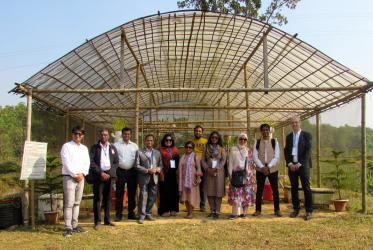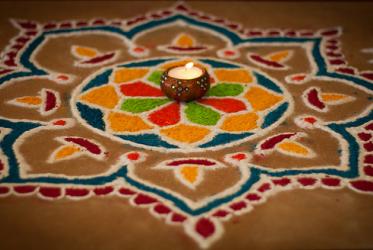Displaying 41 - 60 of 103
19 November 2019
Tveit: “Love is about the future: Where are we going from here?”
17 November 2019
WCC Eco-School begins in Thailand
07 November 2019
In Korea, young ‘stewards of hope’ forge ahead together
19 September 2019
WCC organises event on “The Human Rights Situation in the Philippines”
18 September 2019
“Economy of life” lifted up at special school in Indonesia
22 August 2019
WCC pilgrimage turns its eyes to Asia
04 March 2019
Workshop in Bangladesh links climate, economic justice
07 February 2019
All pilgrim routes lead to COP24
11 December 2018
#WCC70: At the end of an assembly
16 October 2018
A Light of Peace - for the Korean Peninsula and a world free from nuclear weapons
03 - 10 December 2017
Worldwide
WCC offers greetings to Hindus celebrating Diwali
19 October 2017











